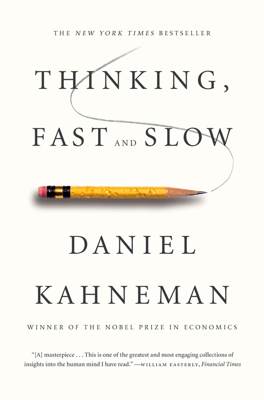Frames and Reality
Frames and Logical Equivalence
- Logical vs. Associative Meanings: The chapter begins by exploring how identical logical statements like "Italy won" and "France lost" can evoke different associative responses. Though logically equivalent, these statements activate different thoughts and emotions, highlighting the distinction between econs (who view choices as reality-bound) and humans (who are influenced by how choices are framed).
Emotional Framing and Decision-Making
Example of Framing Effects: A framing example demonstrates how people respond differently to the same scenario based on its presentation. People are more likely to accept a gamble described as a chance to win rather than a chance to lose something, indicating a stronger aversion to framed losses than to equivalent costs.
Framing in Consumer Behavior: The differential pricing in gas stations (cash discount vs. credit surcharge) illustrates how people prefer to forgo a discount rather than pay a surcharge, further emphasizing emotional responses to framing.
Neuroeconomics and Framing
- Brain Activity and Framing: Neuroeconomic studies show that different areas of the brain activate based on whether decisions align with or resist framing effects. For example, the anterior cingulate cortex shows more activity when participants resist natural inclinations induced by framing.
Impact of Framing on Professionals
- Medical Decision-Making: Even medical professionals are not immune to framing effects. In a study, physicians were influenced by whether patient outcomes were framed in terms of mortality or survival rates, significantly affecting their treatment choices.
Inconsistencies Unveiled by Framing
- The Asian Disease Problem: When presented with a problem framed in terms of saving lives versus lives being lost, people show inconsistent choices despite the scenarios being logically equivalent. This underscores how framing can lead decisions away from objective assessments.
Organ Donation: A Case Study in Framing
- Opt-in vs. Opt-out Policies: The dramatic difference in organ donation rates between countries with opt-in and opt-out policies highlights how framing can significantly influence public behavior. The default option (opt out) substantially increases participation compared to requiring active opt-in.
Superior Frames
- Mental Accounting and Sunk Costs: The chapter discusses how framing affects financial decisions through mental accounting. One scenario shows that people react differently to losing concert tickets versus losing a comparable amount of cash. The latter frame, focusing on total wealth instead of specific expenditures, typically leads to more rational decisions.
Policy Implications
- Importance of Frame Selection in Policy: The discussion extends to how selecting the appropriate frame (e.g., gallons-per-mile instead of miles-per-gallon for vehicle efficiency) can lead to better-informed consumer choices and more effective policies.
Summary: The Power of Framing
- Framing not only influences personal decisions but also significantly affects policy outcomes and professional judgments. Recognizing the power of framing allows for more rational decision-making by focusing on how information is presented and perceived. The chapter argues that skeptics of human rationality understand the impact of seemingly inconsequential details in shaping significant choices.
